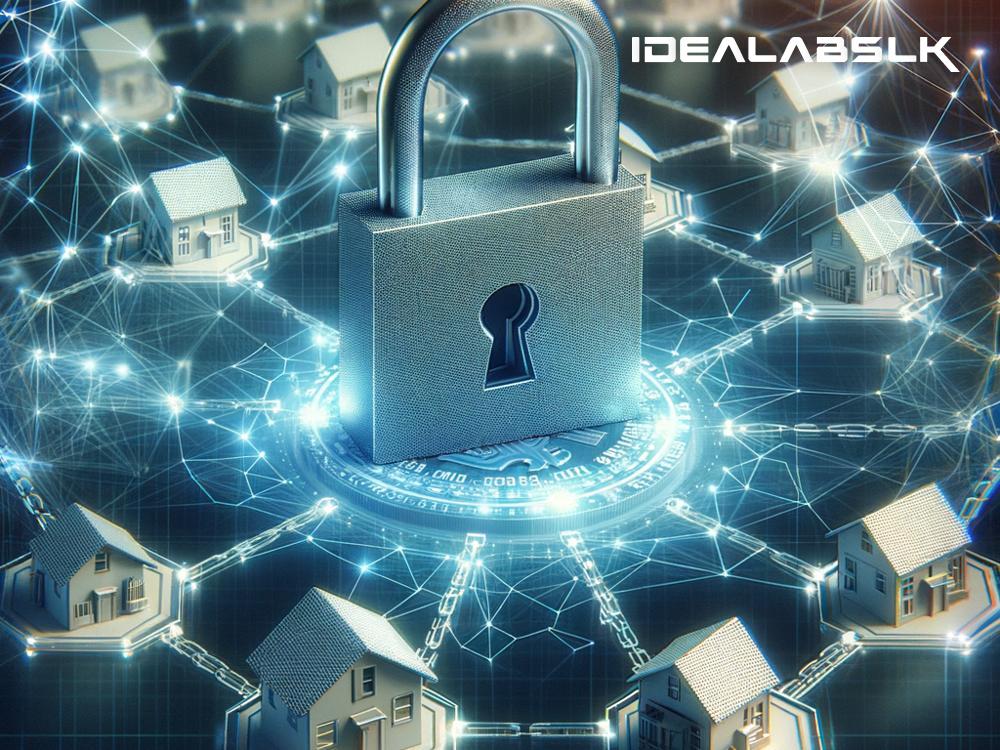Blockchain Technology: Revolutionizing Real Estate Deals with Enhanced Security
In the ever-evolving world of technology, blockchain has emerged as a powerhouse, particularly in enhancing the security of real estate transactions. This innovative technology, often associated with cryptocurrencies, is making significant strides in various industries, and real estate is no exception. Let’s delve into how blockchain technology is revolutionizing real estate deals by offering layers of security previously unimagined.
The Basics of Blockchain Technology
Before we dive into its impact on real estate, it's essential to grasp what blockchain is. Imagine a digital ledger or a record-keeping book that is accessible online. This ledger isn't stored in one location; instead, it's spread across a network of computers. The beauty of blockchain is that once a record is made, it's nearly impossible to alter. This characteristic ensures transparency and security, which are paramount in real estate transactions.
The Challenges of Traditional Real Estate Transactions
Real estate deals are complex, often involving multiple parties, heaps of paperwork, and the potential for fraud. Transactions can be slow, taking weeks or even months to finalize. There’s also the issue of trust; buyers and sellers must rely on intermediaries like agents and lawyers to ensure the deal is fair and secure. This complexity not only adds time and cost but also increases the risk of errors or fraudulent activities.
Enter Blockchain: A Solution for Secure Transactions
Blockchain technology is set to transform real estate deals by addressing these challenges head-on. Here’s how:
1. Enhanced Security and Trust
With blockchain, every transaction is recorded in a way that is permanent and tamper-proof. This means that once a deal is entered into the ledger, it cannot be altered or deleted. This level of security and transparency builds trust among parties, as everyone involved has access to a single, immutable version of the truth regarding the transaction.
2. Streamlined Processes
Blockchain can significantly reduce the time it takes to complete real estate transactions. By automating processes and removing the need for some intermediaries, deals can be closed faster, more efficiently, and with fewer errors. This not only saves time but can also reduce the costs associated with buying or selling property.
3. Smart Contracts
One of the most exciting applications of blockchain in real estate is the use of smart contracts. These are self-executing contracts with the terms of the agreement directly written into code. Smart contracts automatically trigger actions like transferring property titles or releasing funds once conditions are met, all without human intervention. This further reduces the possibility for fraud and ensures a seamless transaction process.
4. Fractional Ownership
Blockchain allows for something called fractional ownership in real estate. This means that a property can be divided into shares that are sold to many investors. It offers an opportunity for people to invest in real estate with a smaller amount of money, making investment more accessible. Moreover, blockchain makes managing these shares, selling, and buying portions of property rights easier and secure.
Real-World Impact
The potential of blockchain in real estate is not just theoretical; it's already making an impact. From the United States to Dubai, pilot projects and platforms are being developed to facilitate property transactions using blockchain. Startups are exploring its use for everything from property listings and payments to land registries and investment platforms.
Challenges and the Future
Despite its potential, the adoption of blockchain in real estate comes with challenges. Regulatory hurdles, the need for a technological overhaul, and skepticism from traditional players in the market are significant barriers. However, as the technology matures and more success stories emerge, the real estate industry is likely to witness a widespread adoption of blockchain.
Conclusion
Blockchain technology promises to revolutionize real estate transactions by making them more secure, efficient, and accessible. While it’s still early days, the potential benefits are too significant to ignore. As we continue to navigate through the intricacies of blockchain, one thing is clear: the future of real estate transactions looks brighter and much more secure. Blockchain is not just an innovation; it's a transformative force that’s reshaping how we buy, sell, and invest in property for the better.

